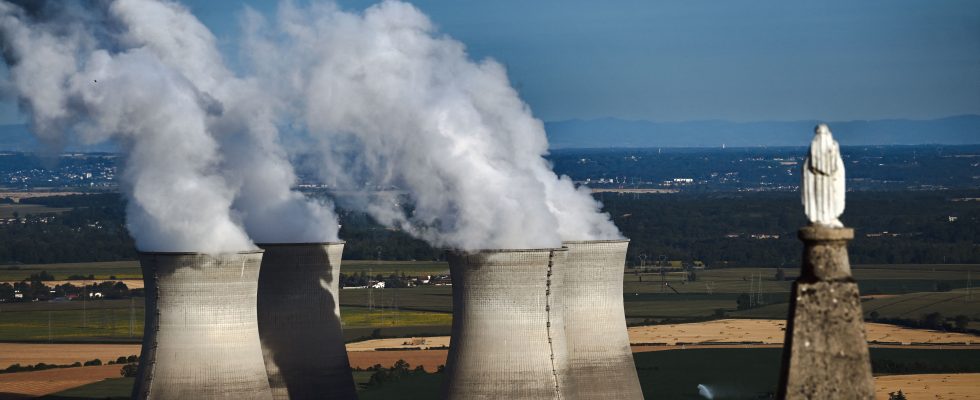It’s back to school! For the French nuclear industry too, which is being given all the attention of the public authorities: Emmanuel Macron in front of the French ambassadors gathered as every year at the end of August, Bruno Le Maire at the summer university employers, Agnès Pannier-Runacher in the press… French leaders never stop declaring their support for nuclear power. fiat lux, nuclearis if possible! These long-awaited statements by an industry, at best ignored, at worst vilified for ten years, are also addressed to Germany. “Nuclear is an absolute red line of French economic policy”, insists Bruno Le Maire. And the President of the Republic to drive the point home: “It would be a historic fault to deprive us of nuclear power, to slow down investments or nuclear innovation in Europe.” Hello, Berlin?
Produce more, with the existing
We obviously have to rejoice at this radical change in tone after an energy debate punctuated by the German Energiewende. But let’s be clear: French nuclear power has fallen behind. Ten years have been lost and, if it is fair game to settle accounts with the neighbor across the Rhine, it is already a debate of the past. Of course, it is necessary to fight step by step in Brussels against the constant undermining of the anti-atom galaxy. But if the nuclear student wants to regain the top of the class, he must now devote his energy to other battles and face the challenges of the recovery on which all the other major players in the sector are working: United States, China , South Korea, Great Britain and Russia. It is in this court, that of the big ones, that we must play, not in the sandbox of the anti-nuclear dunces.
First challenge: in a context of climate change, the key word must be acceleration. The endlessly repeated phrase that “nuclear power can bring nothing to the climate emergency before 2035”, that is to say with the arrival of new reactors, is false. Thinking about nuclear according to the dichotomy between the existing and the new omits this fundamental issue of virtual nuclear power, these TWh which can be activated if, in addition to the extension of existing reactors, we increase the power of some of them, we reduces the duration of unit outages, in short, if the existing tool produces more, like its peers abroad who have been working on it for several years. All of this is possible long before 2035.
A busy program
Second challenge: if this acceleration is possible, it is also thanks to the SMR revolution, these small modular reactors. SMRs are to nuclear what the shale gas revolution was to the gas industry. It is thanks to her that the United States became the new giants of gas and petroleum liquids. France started late in this race, which continues to leave part of the nuclear establishment skeptical. It must change scale in this area.
Third challenge: speeding up means both increasing the means allocated to the Safety Authority, to enable it to support the industry at the right pace, while re-examining its practices. French hyper-bureaucratization has invaded the nuclear sphere over the past decade. The complexity of the current procedures is not compatible with recovery, even though this layer of paperwork adds nothing to security. And, to go further, we must question the cost-benefit ratio of security measures: the debate is mounting in the United States, even though security doctrine already incorporates the economic factor. We must also have it in France.
Fourth issue: in the nuclear industry too, the “de-Westernization” of the world is at work. The first power plant manufacturers are Chinese and the main exporters are Russian. French industry obviously remains powerful internationally, as a supplier of services to existing power plants, both in the fuel cycle and for reactors. But on the new nuclear, it is far… Going it alone, including at home, seems illusory in a world of opportunistic alliances. European or Euro-Atlantic alliance, we will have to succeed in countering these new competitors.
This is what the French nuclear program should be in this school year 2023-2024. Meet at the end of class to see if he can join the next class. Or skip a few.
* Cécile Maisonneuve is president of Decysive and advisor to the energy and climate center of Ifri.
